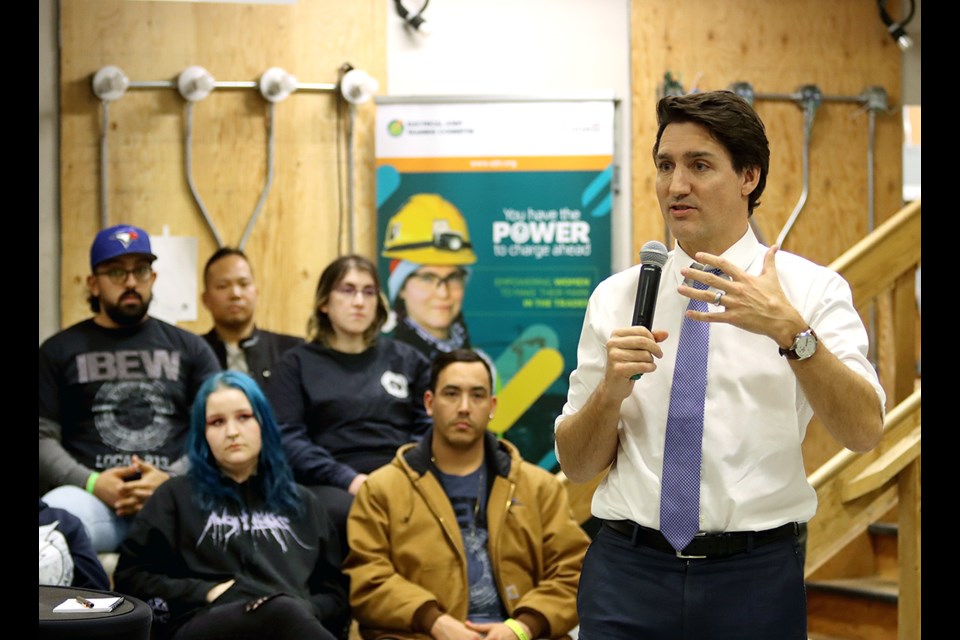The Prime Minister of Canada swung into Port Coquitlam today (March 1) to talk to trade workers and apprentices at a closed townhall meeting.
Liberal leader Justin Trudeau spoke to about 100 people at the IBEW 213 Electrical Joint Training Committee office on variety of topics ranging from inflation, skilled jobs and outsourcing of work overseas to climate change, mental health and Indigenous relations.
With his sleeves rolled up, Trudeau took the microphone and centre of the room for 90 minutes to answer more than a dozen questions with Delta MP Carla Qualtrough — the federal minister for employment, workforce development and disability inclusion — at his side.
Trudeau addressed the “overwhelming” challenges since the COVID-19 pandemic on the supply chain and labour market, as well as the mental health impacts on Canadians.
However, he said, compared with other G7 nations, he’s “optimistic” with the country’s direction.
“We know that we can make it through tough times,” he said, noting Canada’s advantages with its natural resources and financial position globally.
“We want to build for a strong future.”
Though Trudeau drew applause when pressed on extending federal financial aid for female apprentices, as well as committing to introducing anti-scab legislation in the House of Commons “by the end of the year,” he was challenged repeatedly on the government’s Indigenous record.
“Reconciliation isn’t something that Ottawa can do,” he responded, adding that he aims to rebuild trust after decades of inter-generational trauma.
Still, he warned, change will come when the Indigenous communities — not Canada — are ready.
On the Indian Act, first signed in 1876 and still in force with amendments to define how Canada interacts with the 614 bands and First Nations, Trudeau called it outdated legislation.
“It should be gone,” he said, bluntly, “but you have to do it at their pace, not ours. There needs to be patience.”
Asked about the cell phone and internet connection to rural areas like northern B.C., Trudeau said it’s on its way, commenting, “The pandemic showed how important it is to plug in. It’s not just a luxury. It’s a fundamental essential.”
IBEW (International Brotherhood of Electrical Workers) Local 213 has about 6,000 members employed in construction, utilities and communications; half of its members are in the electrical trades.


